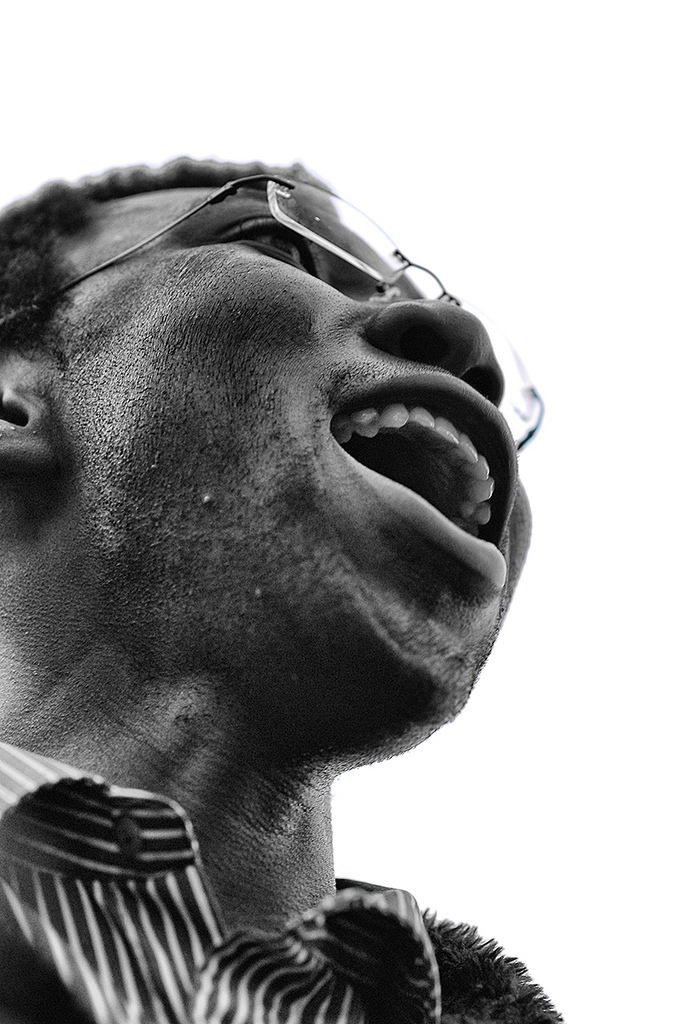A planetary humanism made to the measure of the world
Excerpts from a conversation with the British historian, writer and academic Paul Gilroy.

Speaker's Corner, Hyde Park. Image credit Hugh Hill via Flickr (CC).
Paul Gilroy is one of the most formidable cultural and social theorists of our time. The son of the Guyanese-born novelist Beryl Gilroy, Gilroy grew up in London’s East End, and studied at the Centre For Contemporary Cultural Studies (CCCS) at the University of Birmingham under the supervision of the late Cultural Studies doyen Stuart Hall (1932-2014).
Gilroy’s breakthrough work was There Ain’t No Black In The Union Jack, first published in 1987. He is also known for works such as The Black Atlantic: modernity and double consciousness (1993), Against Race: imagining political culture beyond the color line (2000) and After Empire: Melancholia or Convivial Culture (2004). Gilroy’s work speaks to practically anyone interested in the vexed questions relating to “race,” racism and nationalism in our time, and offers a trenchant multi-pronged critique of various forms of essentialism from the point of view of an engaged postcolonial scholar long committed to anti-racism and anti-colonialism and the furthering of multicultural cultures of conviviality. It was with this in mind that I decided to invite Paul Gilroy to my “Anthropology of our times” series in public anthropology at the House of Literature in Oslo, Norway on April 17th 2018.
A transcript version of the public conversation I–along with Tony J. Sandset and Gard R. Højberg–had with Gilroy about his life, work and influences in front of a packed hall at the House of Literature in Oslo on that day has now been made available in an open access version by the journal Cultural Studies.
On conviviality:
For much of my early life that was a question that was put to me a lot, actually. ‘Where are you from? You can’t be from here!’ And I suppose in a way, the history of my responses, my evolving responses to that question can be retrospectively made into a narrative that explains my work…[…]… London didn’t just become a heteroglot cosmopolitan place recently. I mean in the flats where I grew up—you know—upstairs from us were Jamaicans and Indians, my best friend as a young child was a boy whose mother was French and his father was Algerian and they had come to live in London to get away from the situation in France. The people who lived opposite were Jews, and there were Sikhs and Cypriots. I am really formed by that mix. I am formed by that version of a rich, urban culture in which local, white English life is only one element. In my work I have called it a convivial culture, which is not the same thing as a multicultural [one]. It is a convivial culture. In other words, very complicated forms of interdependence exist where one set of habits flows into others and all of them are altered by that encounter.
On the Caribbean and black studies:
When thinking about the making of our modern world it is essential to understand… that the Caribbean was a kind of experiment. It is an unprecedented historical experiment in the making of social and economic and political life. Anyone who wants to understand the history of our modernity has to know that history. CLR James said as much in his beautiful essay Black Studies and the Contemporary Student from 1969. He says that he loved black studies only as long as it was a way of teaching an alternative history of the world, of western civilization.
On James, Glissant and Hall:
What they showed me was that it was possible to be a black intellectual. Which is a kind of impossible condition. In the way that modern racism works, blackness is the body and whiteness is the mind.
On Fanon:
For me Fanon, like Césaire actually, is a great humanist. A planetary humanist is what he is. Césaire says ‘We must make a humanism made to the measure of the world, right?… I would say that there are two things about Fanon that his many American readers have failed to really grasp… One is that he was a doctor. He had a doctor’s mentality: he wanted to heal—actually. In Fanon every argument about violence, every single comment on violence is framed or qualified by an argument about healing. And the other thing… he was also a soldier. So in Fanon we have someone who combines the figures of the doctor and the soldier. The taker of life, and the saver of life. You can’t comprehend him without that pairing.
On new racism:
The context of that book [There Ain’t No Black In The Union Jack]… was the emergence of what a number of us had begun to call a new racism. By calling it a new racism we were drawing attention to the fact that it was strongly culturalist in character, and that it articulated nationalism and racism very tightly together… I felt that the starting point for any critique of the racism that I was most familiar with was a very close connection with nationalism. That association was accomplished through a particular sense of what culture could be, which had acquired all the force of an earlier biologically-orientated racism. But the new racism didn’t announce itself as a biological racism. It made culture into the favoured battleground.
On anti-racism:
There are some people—rightly or wrongly—who want anti-racism to be a critical project only. They want to be able to say what is wrong with the world and to show how those wrongs might be challenged, undone… However, I don’t think that is enough, and I think we do that work better—we do it much better—if we have an idea of the world we want to make. And that might be difficult but it could not be avoided.
The full interview can be accessed here.


